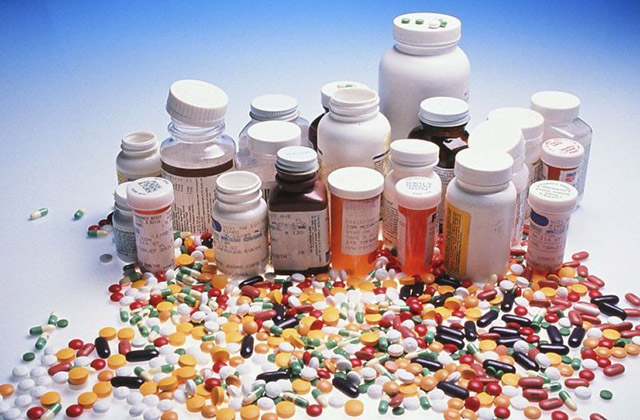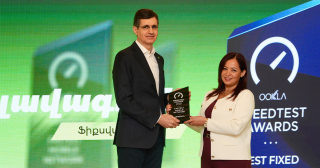Ministry of Health Imported Medicine-Double Expensive and Non-registered in Armenia

RA Control Chamber last year studied issues regarding centralized procurement by the Ministry of Health throughout the last 2 years, productivity of allocation of funds to medical institutions for the purpose of providing medicine to the population, as well as issues regarding current legislation on circulation of medicament.
According to the Control Chamber, the issue of direct purchase of Glimepiride and Metformin diabetes medicaments just from the producer by centralized order hasn’t been solved yet. A clarification has been released by the Ministry, according to which negotiations are being held with pharmaceutical companies on procurement of Glimperidie/Metformin and Metformin hydrochloride, for direct purchase from the European producer. Estimated prices for the corresponding medicament have been developed, on the basis of prices for similar medicament of Indian and local production (with the same chemical composition). That’s why some extra postponing is recorded conditioned by negotiations with producers.
As a result of carried out inspection, it turned out that Selsept was registered in Armenia’s registration book 10 September 2009, for a 5-year term (producing country—Italy), while Selsept purchased by the Ministry in 2014 has been produced and imported from India, 1 capsule per AMD 230, or 2.5 times cheaper than that produced in Italy. As a result, in 2014 the medicament has been purchased by more than double price, in case when it hasn’t even been registered in Armenia. Noteworthy enough, upon order of the Minister of Health 17 November 2014, import of Selsept produced in India has been refused, as registration term expired 10 September 2014, however, upon another order of 28 November 2014, import of the same consignment was allowed. The order made reference to the resolution by RA Government, which reads, that only medicament registered in the Republic of Armenia may be imported, except, during disasters, epidemics or other states of emergency, as well as medicament imported to Armenia as a humanitarian aid.
Prices for medicament in the period of 2014-2015 have essentially fallen, however, in procurement of the Ministry cases are observed when they are purchased by considerably higher price that the import price. For instance, 4677 tablets of Desmopressin Acetate 0.1mg/5ml have been purchased by the Ministry in 2014, each tablet costing AMD 5789, with the total amount of AMD 27 million 75.2, in case, when it has been imported to Armenia by AMD 2720, or twice cheaper than the price purchased by the Ministry. 5000 tablets of the same medicament have been acquired by AMD 5267, which were imported to Armenia by AMD 3000 or 75% cheaper than the price acquired by the Ministry. 358500 tablets of Diazon-MR 60mg have been purchased by price 64% higher than the import price (AMD 44.7) in 2015.
Productivity and legality of funds for purchase of medicament from allocations under accord signed between the Ministry and medical institutions within “Primary maintenance of population’s health” has also been selectively inspected by the Control Chamber. Upon selective order in polyclinics N 20 and N22, N3 in Vanadzor, National Center of Oncology after V.Fanarjyan. it turned out that in a range of cases in polyclinics medicament is purchased with prices higher than the import one. For instance, Amlodipin Bezilat has been purchased by a twice double price in 2015, and Dexametasone, with three times more expensive price. Omeprasol has been purchased by AMD 12.6 in 2014 by polyclinic N 22, in case, when it was imported to Armenia by AMD 6. Nimesulide 100mg was purchased by AMD 67 by polyclinic N 20, meanwhile it was imported to Armenia by AMD 20.
Demand by the Ministry of Health has been violated, food supplements have been included in the procurement plan and later purchased by the polyclinics. For instance, in 2015 polyclinic N 20 acquired tablets with lacto- acido- bifidobacteries of Bulgarian production and Multilac food supplement, which haven’t been recorded in state register, however, were included in procurement plan of the polyclinic.
Polyclinic N 22 provided purchase of 1200 Echinacea of Czech production, 400 tablets of LactoMax of Italian production, 300 tablets of Ehineid of Italian production, and etc, which haven’t been recorded in state register. Inspections showed that this phenomenon is an implication of lack of law, “food supplement” notion contains some misreading, linked to definitions and non-clear registration of sphere of circulation.
Inspections also showed that in polyclinics N22 and N 3 in Vanadzor and Oncological Center, storage and keeping of some medicament has been implemented with violation of a defined order, in particular, some medicament requiring protection from light and humidity have been kept in light and humid rooms.
By Gayane Khachatryan

























